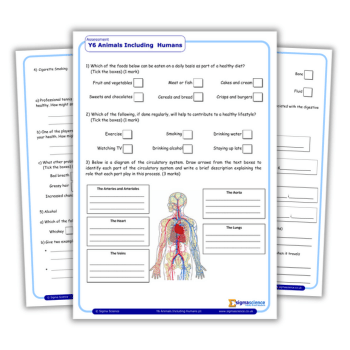Formal Written Tests Given to all Primary Year Groups are a Waste of Time

What sort of testing system actually tests children on things you haven’t yet taught, asks The Fake Headteacher…

When I started teaching, I remember the head asking the class to complete a maths and reading test. The class did them. I marked them and handed the scores in. That was it. There was no scrutiny of my teaching, no target setting in pupil progress meetings and no talk of freezing my pay.
Over the years, the annual test turned into two tests a year. Then a test week was introduced once a term. And for some, you may even have to do test week every half term now.
At my next school, we had two test weeks a year. My first set of results were not great. I was called into the head’s office and given a good ticking off. He pointed out that my colleague, who was in the same year group, had excellent results.
After the meeting, I was confidentially told by another teacher, that my colleague had taught that year group for years, knew the tests inside out and knew how to play the game.
I was shocked but it helped explain the differences between the two classes. I went back through the papers and realised that lots of questions were based on content we hadn’t even taught. My test results improved dramatically later on in the year! I felt bad but the head was much happier.
When I moved schools again, the first thing I did was to look through the forthcoming test papers. I drip-fed the questions into lessons and my results improved.
Unfortunately for me, no one else did this and my results stuck out like a sore thumb. I was called into the head’s office and asked to bring my books to show evidence of progress. It was awkward. I vowed never to do it again. But then I got cross. What sort of testing system actually tests children on things you haven’t yet taught?
I challenged my next headteacher about it. He said, “I appreciate your concerns and it is a bit unfair but it does provide us with important data throughout the year.”
Having spoken to a few friends about this issue, they have admitted doing things such as: giving children extra time than the test states to complete it; reading out questions to the whole class to make sure they understand; pointing out errors on papers as they walk by; carrying out warm-up problems or questions before the test to ensure those questions are completed correctly; giving back papers to pupils if they should have done better.
Recently, a deputy head, who I was good friends with at the time, said the head knew this sort of thing happened but “the data looks good and keeps Ofsted off our back”. This annoyed me further.
The tests are often so different to what happens in class. In which maths lesson would I expect children to answer 30 to 40 questions based on random mathematical knowledge, from two-step fraction problems to reading a 24-hour train timetable, all within 45 minutes?
Typically, the pupil might answer a handful of questions in a lesson but all based on the same skill. No wonder Y4 pupils fall apart when they see the test.
In which reading lesson would I expect children to answer 30 to 40 questions based on three different text types (that they haven’t studied before), using test question language they don’t hear when discussing a class book?
When would I expect my class to read and answer questions independently for 45 minutes when their normal reading lessons are only 20 to 30 minutes? The test doesn’t cover what I have taught and is completely different to what the children have been exposed to.
I asked the head if we could at least study the three text types in the term so the children had seen them before, or even drip-feed the types of reading questions they are expected to answer in lessons. He said no, as this would give an “unfair advantage to the pupils”.
So, I continued to give the class long tests based on many things they hadn’t been exposed to before. And to make things worse, the data is now often used to bash teachers over the head with. Maybe we should stop testing in this manner.
Right, I’m off to take my piano exam. I just hope the examiner doesn’t ask me to play pieces my teacher hasn’t taught me yet!
The Fake Headteacher has taught in five schools across a 20 year career. Find out more at headteacher-newsletter.com and follow on Twitter at @fakeheadteacher.











